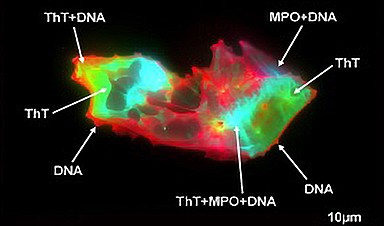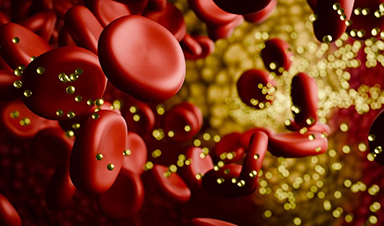A Yale study says not yet.
A recent study led by Yale University highlights that while neuroimaging holds great potential in connecting specific symptoms of mental health disorders to abnormal brain activity, there are still challenges to overcome before it can be reliably used to diagnose conditions like PTSD. The study underscores the need for further research and development in the field of neuroimaging to refine its applications for psychiatric diagnoses.
Their findings were recently published in the American Journal of Psychiatry.
A few years back, the National Institutes of Mental Health initiated a multi-billion-dollar research project aimed at identifying biomarkers of brain activity that reveal the biological basis of various mental health disorders. Currently, these disorders are mainly diagnosed through clinical evaluation based on a patient's reported symptoms, which often overlap with each other.
For the new study, the Yale-led team attempted to replicate the findings of an earlier nationwide neuroimaging study, in which Emory and Harvard scientists linked clusters of brain activity to a variety of outcomes among patients who had arrived at U.S. emergency departments following traumatic events. Specifically, when researchers measured patients' brain activity during the performance of simple tasks — including ones that probe responses to threats and rewards — they detected a cluster of brain activity that showed high reactivity to both threat and reward signals and seemed to predict more severe symptoms of PTSD later on.
However, when Yale researchers analyzed similar neuroimaging data collected from recent trauma survivors in Israel, they were not able to replicate these findings. While they did identify the different clusters of brain activity observed in the earlier study, they found no association with prospective PTSD symptoms.
"That is not to say one set of data is right and the other is wrong, just that there is a lot of fundamental work that needs to be done to develop reliable models that could generalize across different studies," said Yale's Ziv Ben-Zion, a postdoctoral associate at Yale School of Medicine and the corresponding author of the study.
In fact, Yale researchers are currently working with the investigators of the original Emory-Harvard study to merge datasets "to search for common underlying patterns of brain activity associated with different responses to trauma," Ben-Zion said.
"It took about 100 years to come up with current classifications of mental illness, but we've only been exploring refining psychiatric diagnoses using biomarkers for the last 10 years," said Harpaz-Rotem. "We still have a long way to go."
News
Fever-Proof Bird Flu Variant Could Fuel the Next Pandemic
Bird flu viruses present a significant risk to humans because they can continue replicating at temperatures higher than a typical fever. Fever is one of the body’s main tools for slowing or stopping viral [...]
What could the future of nanoscience look like?
Society has a lot to thank for nanoscience. From improved health monitoring to reducing the size of electronics, scientists’ ability to delve deeper and better understand chemistry at the nanoscale has opened up numerous [...]
Scientists Melt Cancer’s Hidden “Power Hubs” and Stop Tumor Growth
Researchers discovered that in a rare kidney cancer, RNA builds droplet-like hubs that act as growth control centers inside tumor cells. By engineering a molecular switch to dissolve these hubs, they were able to halt cancer [...]
Platelet-inspired nanoparticles could improve treatment of inflammatory diseases
Scientists have developed platelet-inspired nanoparticles that deliver anti-inflammatory drugs directly to brain-computer interface implants, doubling their effectiveness. Scientists have found a way to improve the performance of brain-computer interface (BCI) electrodes by delivering anti-inflammatory drugs directly [...]
After 150 years, a new chapter in cancer therapy is finally beginning
For decades, researchers have been looking for ways to destroy cancer cells in a targeted manner without further weakening the body. But for many patients whose immune system is severely impaired by chemotherapy or radiation, [...]
Older chemical libraries show promise for fighting resistant strains of COVID-19 virus
SARS‑CoV‑2, the virus that causes COVID-19, continues to mutate, with some newer strains becoming less responsive to current antiviral treatments like Paxlovid. Now, University of California San Diego scientists and an international team of [...]
Lower doses of immunotherapy for skin cancer give better results, study suggests
According to a new study, lower doses of approved immunotherapy for malignant melanoma can give better results against tumors, while reducing side effects. This is reported by researchers at Karolinska Institutet in the Journal of the National [...]
Researchers highlight five pathways through which microplastics can harm the brain
Microplastics could be fueling neurodegenerative diseases like Alzheimer's and Parkinson's, with a new study highlighting five ways microplastics can trigger inflammation and damage in the brain. More than 57 million people live with dementia, [...]
Tiny Metal Nanodots Obliterate Cancer Cells While Largely Sparing Healthy Tissue
Scientists have developed tiny metal-oxide particles that push cancer cells past their stress limits while sparing healthy tissue. An international team led by RMIT University has developed tiny particles called nanodots, crafted from a metallic compound, [...]
Gold Nanoclusters Could Supercharge Quantum Computers
Researchers found that gold “super atoms” can behave like the atoms in top-tier quantum systems—only far easier to scale. These tiny clusters can be customized at the molecular level, offering a powerful, tunable foundation [...]
A single shot of HPV vaccine may be enough to fight cervical cancer, study finds
WASHINGTON -- A single HPV vaccination appears just as effective as two doses at preventing the viral infection that causes cervical cancer, researchers reported Wednesday. HPV, or human papillomavirus, is very common and spread [...]
New technique overcomes technological barrier in 3D brain imaging
Scientists at the Swiss Light Source SLS have succeeded in mapping a piece of brain tissue in 3D at unprecedented resolution using X-rays, non-destructively. The breakthrough overcomes a long-standing technological barrier that had limited [...]
Scientists Uncover Hidden Blood Pattern in Long COVID
Researchers found persistent microclot and NET structures in Long COVID blood that may explain long-lasting symptoms. Researchers examining Long COVID have identified a structural connection between circulating microclots and neutrophil extracellular traps (NETs). The [...]
This Cellular Trick Helps Cancer Spread, but Could Also Stop It
Groups of normal cbiells can sense far into their surroundings, helping explain cancer cell migration. Understanding this ability could lead to new ways to limit tumor spread. The tale of the princess and the [...]
New mRNA therapy targets drug-resistant pneumonia
Bacteria that multiply on surfaces are a major headache in health care when they gain a foothold on, for example, implants or in catheters. Researchers at Chalmers University of Technology in Sweden have found [...]
Current Heart Health Guidelines Are Failing To Catch a Deadly Genetic Killer
New research reveals that standard screening misses most people with a common inherited cholesterol disorder. A Mayo Clinic study reports that current genetic screening guidelines overlook most people who have familial hypercholesterolemia, an inherited disorder that [...]





















